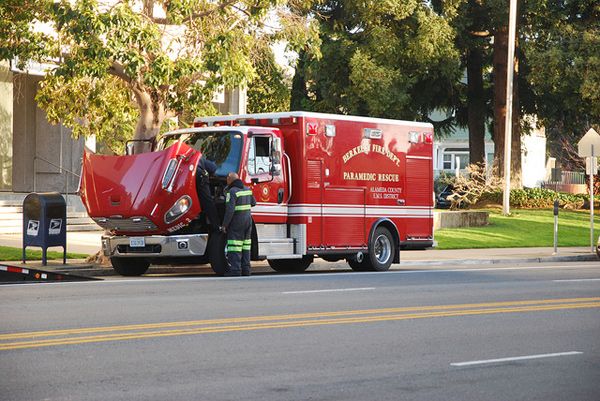By Sean Eddy
EMS is one of those fields that has a lot of good people that truly have a passion for what they do, but it‘s also littered with people who should have left a long time ago.
We‘ve all worked with them. You know, the ones who stomp their feet every time the tones go off and do the absolute minimum to keep their employment. They generally seem like they hate life and they‘re rather unpleasant to be around ... at least at work.
I used to believe that they were what we would all eventually become. At first I joked about it, until it became reality. I started hitting my burnout phase in a hurry (before I even turned 30), and I realized that I didn‘t want to hate my job for the rest of my life. I had two choices: either figure out my problems, or leave. Fortunately, I chose to figure out my problems.
There is no secret formula to being happy in life or even happy in your career. You just have to approach it with the right mindset. Here are six things that I, and many others, have done to turn our jobs into rewarding careers.
1. Figure out if this is the right career for you
No matter where you are in your career, you need to seriously consider this. While EMS can be rewarding, it‘s also not very glamorous. Seriously ask yourself why you‘re here and if this is really a job that you‘re ok doing for the rest of your life. Life is way too short to be in a job that you don‘t like. If this isn‘t for you, then start working on a plan to leave.
2. Set career goals
Figure out where you want to be five 10, 20 or 30 years from now. This can be as simple as completing paramedic school, moving into management or becoming a nurse. This doesn‘t even have to be related to EMS. Maybe you want to start a business or go to physician assistant school. Whatever it is, just have a goal and work towards it.
3. Find the right place to work
Seriously consider this when looking at your situation. I spent over a decade working in an area that I didn‘t particularly like to live. I had a great job, but the politics around the state and cost of living made things difficult. I finally moved to another state, landed an amazing job and improved the quality of my life. Yes, I know this may not be easy or practical for many people. But, I will say that the earlier you figure this out, the easier the arrangements will be.
4. Get your finances straight
Regardless of how much you make, it‘s imperative that you get a budget together and set financial goals. Nothing will drive you into career turmoil like financial problems. Trust me, this can and will be a breaking point for you if you don‘t figure this out. I‘m well aware that EMS wages aren‘t all that desirable and in many areas aren‘t exactly what many would call livable. Regardless, you need to be organized with your finances and live on less than you make. If things are truly that bad with your cost of living vs. wages, then refer to the previous step.
All I‘m saying here is to just be organized, do your best to live on less than you make and try to set yourself up in an area or situation that allows you to save for the future. It will make all the difference in the world.
5. Have an exit plan
6. Find ways to challenge yourself
Running non-emergent calls day after day can get old quickly. At least if you don‘t have the right attitude about it. Try to look at yourself as a mobile health care provider, rather than someone who responds to emergencies. Take the opportunity to learn something from every call. Maybe it‘s a medication you‘ve never heard of. Maybe it‘s a weird condition. Write a few things down every day and make it a point to actually learn about them. Stay up to date on modern science and practices and challenge yourself to learn new things or sharpen old skills. This goes a long way when trying to avoid burnout.
Like I said, there is no magic formula to have the perfect EMS career. Everyone has their own unique set of challenges. What‘s important, is that you take an active role in overcoming those challenges so that you can focus on doing what you love.















